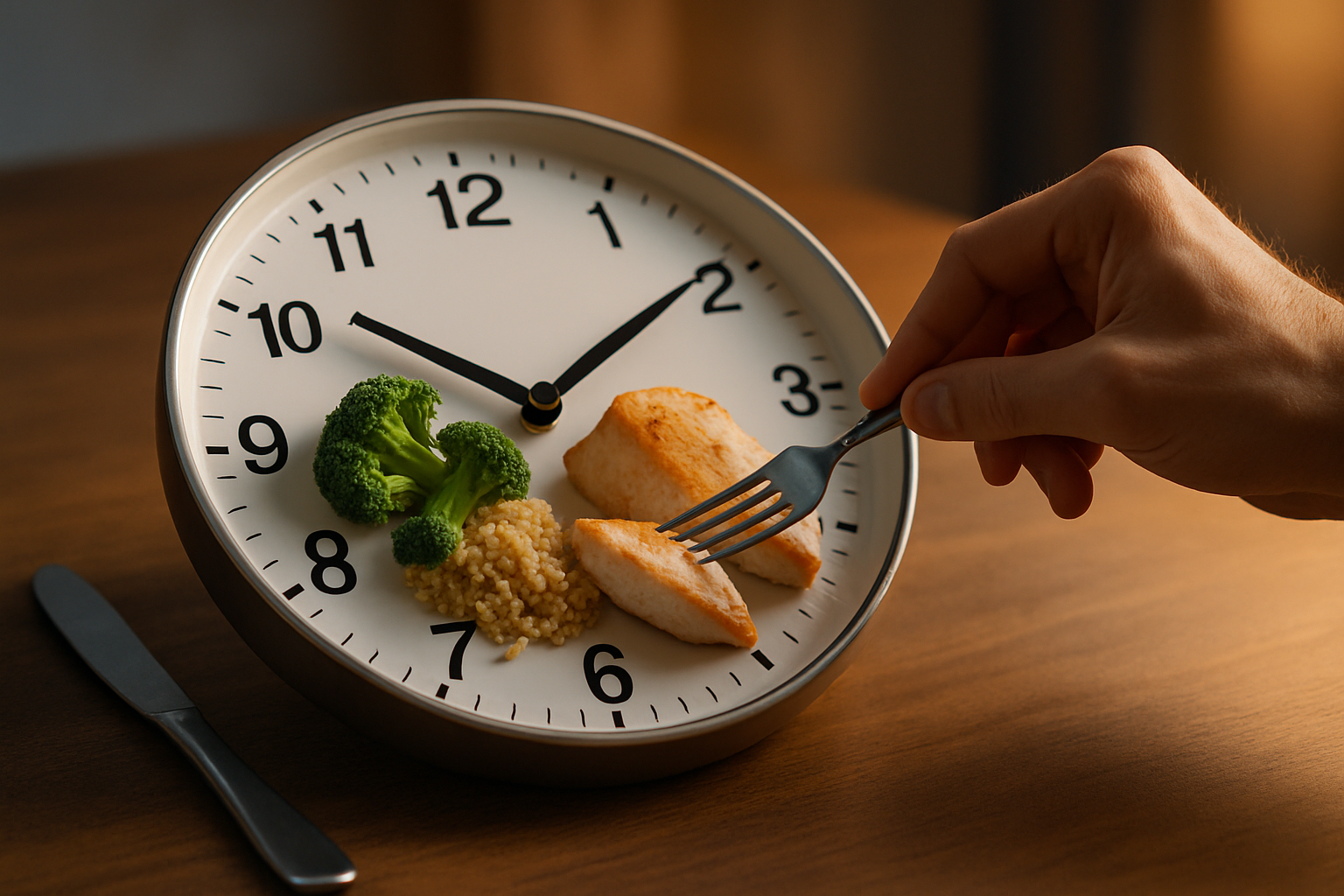Chronodiet: Optimizing Health Through Time-Sensitive Eating
Imagine if the secret to better health, improved energy levels, and weight management wasn't just about what you eat, but when you eat it. Welcome to the world of chronodiet, a revolutionary approach to nutrition that syncs your meals with your body's natural circadian rhythms. Could this time-based eating strategy be the key to unlocking your optimal health?

The Science Behind Chronodiet
At the heart of chronodiet lies the intricate relationship between our circadian rhythms and metabolism. Circadian rhythms are the body’s internal 24-hour cycles that regulate various physiological processes, including hormone production, body temperature, and metabolism. These rhythms are primarily influenced by light exposure and feeding patterns.
Research has shown that our bodies are primed for different functions at different times of the day. For instance, insulin sensitivity is highest in the morning, making it an ideal time for carbohydrate consumption. Conversely, the body’s ability to process fats is more efficient in the evening. By aligning our eating patterns with these natural rhythms, chronodiet aims to maximize nutrient absorption and metabolic efficiency.
Key Principles of Chronodiet
Chronodiet is not about restrictive eating or eliminating food groups. Instead, it focuses on optimizing the timing of meals and snacks. Here are some fundamental principles:
-
Early Eating Window: Chronodiet advocates for consuming most calories earlier in the day when metabolism is at its peak.
-
Consistent Meal Times: Eating at regular intervals helps maintain stable blood sugar levels and reinforces the body’s natural rhythms.
-
Light Evening Meals: Lighter, earlier dinners allow for better digestion and improved sleep quality.
-
Fasting Period: Incorporating a 12-14 hour overnight fast can help reset the body’s internal clock and improve metabolic health.
-
Nutrient Timing: Certain nutrients are better absorbed at specific times of the day. For example, protein intake is often recommended post-exercise for optimal muscle recovery.
Benefits of Chronodiet
Adopting a chronodiet approach can lead to numerous health benefits:
-
Improved Metabolic Health: By aligning eating patterns with natural circadian rhythms, chronodiet can enhance insulin sensitivity and glucose metabolism.
-
Weight Management: Eating in sync with the body’s natural rhythms may lead to better appetite control and more efficient fat burning.
-
Enhanced Digestion: Consuming larger meals when digestive enzymes are most active can improve nutrient absorption and reduce digestive discomfort.
-
Better Sleep Quality: Avoiding late-night eating allows the body to focus on rest and repair during sleep, potentially improving sleep quality.
-
Increased Energy Levels: By optimizing nutrient intake and metabolic processes, chronodiet can lead to more consistent energy throughout the day.
Implementing Chronodiet in Daily Life
Adopting a chronodiet doesn’t require drastic lifestyle changes. Here are some practical tips to get started:
-
Prioritize breakfast: Make breakfast your largest meal of the day, rich in protein and complex carbohydrates.
-
Set consistent meal times: Try to eat at the same times each day to reinforce your body’s natural rhythms.
-
Avoid late-night snacking: Aim to finish your last meal at least 3 hours before bedtime.
-
Hydrate strategically: Drink most of your water earlier in the day to support metabolism and reduce nighttime disruptions.
-
Gradual shift: If you’re used to eating late, gradually move your dinner time earlier over several weeks.
Challenges and Considerations
While chronodiet offers promising benefits, it’s not without challenges. Social obligations, work schedules, and personal preferences can make strict adherence difficult. Additionally, individual variations in circadian rhythms mean that the optimal eating schedule may differ from person to person.
It’s also important to note that chronodiet should be tailored to individual needs. Factors such as age, activity level, and health conditions should be considered when implementing this approach. As with any significant dietary change, it’s advisable to consult with a healthcare professional or registered dietitian before starting.
Chrono-Wellness Tips
• Start your day with natural light exposure to reinforce your circadian rhythm
• Aim for 7-9 hours of sleep each night to support your body’s natural cycles
• Consider using a meal-tracking app to monitor your eating patterns and timing
• Experiment with herbal teas like chamomile in the evening to signal bedtime to your body
• Practice mindful eating to better tune into your body’s hunger and fullness cues
As we continue to unravel the complex relationship between time, nutrition, and health, chronodiet stands out as a promising approach to optimize our well-being. By aligning our eating patterns with our body’s natural rhythms, we have the potential to unlock improved metabolic health, better energy levels, and overall vitality. While more research is needed to fully understand the long-term effects of chronodiet, the current evidence suggests that paying attention to when we eat may be just as important as what we eat in our quest for optimal health.






